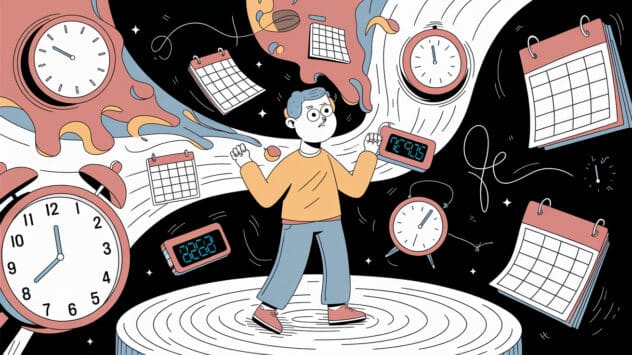Probiotics for Anxiety and Depression in Neurodivergent Individuals
Feeling like your brain’s throwing a wild party, but anxiety and depression are the uninvited guests crashing it? Let’s talk about how probiotics, the gut’s good guys, might help kick those party crashers to the curb. Neurodivergent minds already have enough on their plate without mood swings hijacking the show. Could your gut be the secret bouncer to keep things in check? Let’s take a quick deep dive into probiotics for anxiety and depression.
Understanding the Gut-Brain Axis
First off, let’s chat about the gut-brain axis. No, it’s not a new sci-fi movie. It’s the superhighway connecting your gut and brain, constantly exchanging text messages about your well-being. When this communication line gets jammed, it can lead to mood swings that make a rollercoaster look tame. Scientists have discovered that your gut microbiome actually influences how you feel. That means the wrong gut bacteria can have your mood on a never-ending emotional tilt-a-whirl. Not ideal.
Probiotics: The Gut’s Good Guys
Enter probiotics, the friendly bacteria living rent-free in your gut. These microscopic pals help keep things running smoothly down there. Think of them as the unsung heroes maintaining order at the gut’s party, ensuring the troublemakers don’t take over. Some probiotics are like the DJ spinning serotonin hits, while others keep inflammation in check so your brain isn’t constantly waving the anxiety flag.
Unlock peak brain performance with science-backed biohacks. Join free now & get your guide for just £4.99 (45% off)!

Research shows that specific strains, like Lactobacillus rhamnosus and Bifidobacterium longum, can help regulate neurotransmitters like serotonin and GABA, which are kind of a big deal when it comes to mood. Basically, probiotics might be your brain’s way of keeping the vibes balanced.
Anxiety, Depression, and Neurodivergence
If you’re neurodivergent, like living with ADHD, autism, or other unique brain wiringf, you probably already feel like your thoughts have their own chaotic energy. Now throw in anxiety and depression, and suddenly, it’s like trying to navigate rush-hour traffic with a blindfold on. Research shows that neurodivergent individuals are more prone to anxiety and depression, likely due to differences in neurotransmitter regulation, sensory processing, and, yep, you guessed it, gut microbiome composition.
How Probiotics for Anxiety and Depression Can Help
So, how do probiotics lend a helping hand? Studies suggest that they influence brain chemistry by:
- Producing serotonin and dopamine – The “happy chemicals” that keep your mood from plummeting like a dropped ice cream cone.
- Reducing inflammation – Chronic inflammation in the gut can lead to increased stress and anxiety. Probiotics help calm the system.
- Strengthening the gut barrier – A “leaky gut” can trigger systemic inflammation that affects the brain. Good bacteria patch up those weak spots like microscopic repair crews.
Basically, Probiotics for Anxiety and Depression help your gut and brain work as a team, instead of that awkward silent treatment situation where neither knows what the other is doing.
Incorporating Probiotics into Your Diet
Want to invite these good guys into your system? Here’s where to find them:
- Yogurt: The classic choice, but watch out for sugar-packed imposters. Go for plain, live-culture varieties. ‘Greek-style’ yogurt is often strained and may lack beneficial bacteria, so check the label for live cultures.
- Kefir: Think of it as yogurt’s drinkable, overachieving cousin.
- Sauerkraut and Kimchi: Fermented cabbage that might smell like feet but works wonders for your gut. Make this at home yourself easily (blog coming soon on how-to…).
- Miso and Tempeh: Fermented soy products that taste way better than they sound.
- Pickles (the real ones): Sorry, supermarket pickles don’t count. You need the ones that are actually fermented, not just floating in vinegar.
If fermented foods aren’t your thing (understandable, kimchi is an acquired taste), probiotic supplements are an option. Look for high-quality ones with multiple strains, because diversity isn’t just good for society, it’s great for your gut.
Potential Risks and Considerations
Before you start downing probiotics like they’re candy, remember that your gut bacteria are like a bunch of rowdy roommates who’ve been living together in relative chaos for years. Suddenly, you introduce new probiotic strains, and it’s like throwing a group of enthusiastic vegans into a house full of steak lovers, there’s going to be some territorial disputes. These little microbes will jostle for dominance, causing bloating, gas, and general digestive unrest while they figure out the new hierarchy. Think of it as an awkward first week of university dorm life, but in your intestines.
Also, if you have a compromised immune system or underlying health conditions, check in with a healthcare professional before going all in. You don’t want to start an all-out microbial turf war without knowing who’s got your back.
Conclusion
While probiotics aren’t a magic cure-all, they offer a promising avenue for managing anxiety and depression, especially for neurodivergent individuals. By nurturing your gut health, you might just find your brain starts playing a more harmonious tune. So, here’s to giving those uninvited party crashers the boot and letting your gut’s good guys take center stage.
Join Our Community
Want to swap gut-friendly recipes, share probiotic wins, or just rant about ADHD brain fog? Join our Herbal Biohacker community, where we chat all things neurodivergence, wellness, and science-backed biohacking. Let’s make thriving the new normal.







